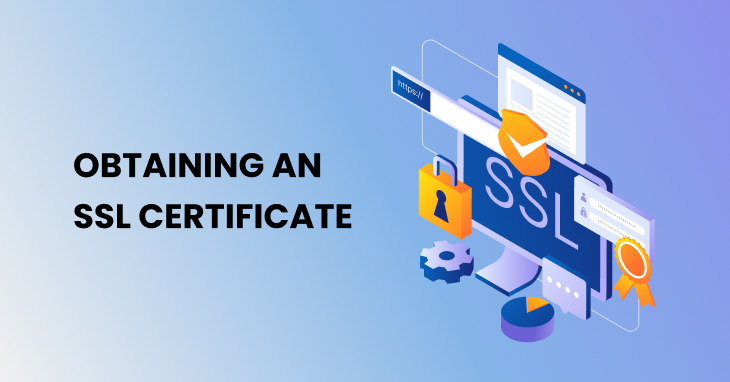I hope you enjoy reading this blog post.
If you want to get more traffic, Contact Us

Click Here - Free 30-Minute Strategy Session
Be quick! FREE spots are almost gone for this Month. Free Quote

In the ever-evolving landscape of the internet, ensuring the security and trustworthiness of websites is paramount. This guide dives into the fundamental concepts of HTTP, HTTPS, and SSL certificates, shedding light on their significance in safeguarding online communications and enhancing user experiences.
Whether you’re a website owner, developer, or simply curious about internet protocols, this comprehensive resource will provide you with the knowledge you need to navigate the world of HTTP, HTTPS, and SSL certificates. From understanding the differences between HTTP and HTTPS to exploring the benefits of SSL certificates for SEO, we’ll cover it all. Let’s embark on this journey to establish a secure and trusted online presence.

Click Here – Free 30-Minute Strategy Session
Be quick! FREE spots are almost gone for this Month

What is HTTP?
Hypertext Transfer Protocol (HTTP) helps to transfer data from a web server to the browser to access and load websites.

HTTPS, short for Hypertext Transfer Protocol Secure, serves the same purpose as HTTP by facilitating the transfer of data from a server to your browser for website loading. The key distinction lies in the enhanced security measures employed by HTTPS. Through encryption, an SSL (Secure Sockets Layer) certificate safeguards the exchanged data, preventing unauthorised access and theft.
While HTTPS was introduced in 1994, it gained widespread adoption as the standard protocol in 2019. This surge in popularity can be attributed, in large part, to Google’s recommendation in 2014, urging website owners to transition to HTTPS website for improved security.
Thanks to its encryption, HTTPS offers enhanced security compared to HTTP, making it a preferred choice for website owners. Regardless of whether you run an e-commerce platform or handle sensitive data, prioritising site security is crucial. A secure website not only safeguards customer data but also protects against potential security breaches, saving you valuable time and resources.
There are several additional benefits to using HTTPS:
By transitioning to HTTPS, you not only fortify the security of your website but also gain the trust of users, improve your SEO ranking tips and prospects, and unlock the potential for innovative mobile experiences.
You may question the necessity of having an SSL certificate for your website, especially if it seems to function well without one. However, the importance lies in safeguarding website security and, more importantly, protecting your customers. SSL certificates offer encryption that shields customer data from potential threats like spyware.
With HTTPS, private key encryption ensures that customer information appears as a random string of characters to unauthorized observers. Only your website, possessing the key, can decrypt and interpret the data as intended. Obtaining an SSL certificate not only enhances security but also contributes to SEO and can be obtained for free.

How to get SSL Certificate?
To obtain an SSL certificate for your website, you need to approach trusted Certificate Authorities (CAs). These CAs are recognised by operating systems and devices. It’s crucial to refer to the list of trusted CAs supported by your device’s operating system.
If a certificate is not from a trusted CA, your device will display error messages. Before obtaining certification, ensure you verify the CAs trusted by your device’s operating system.
Switching to HTTPS is a simple process:
If you’re not comfortable with the technical aspects, many web hosting companies offer assistance for a fee. Remember to update or redirect any remaining internal links to HTTPS.
To check if your website uses HTTPS, follow these simple steps:
By performing these checks, you can easily determine if your website is using HTTPS.
SSL certificates do impact SEO rankings. They contribute to various SEO ranking factors, aligning with other trends of 2021. Here are some ways an SSL certificate can positively influence your website’s SEO score.
SSL certificates enhance website security by encrypting communication and protecting data. This not only improves user trust but also boosts SEO scores, as Google rewards certified websites. Obtaining an SSL certificate is an effective way to gain an advantage over competitors.
Having an SSL certificate not only enhances customer trust but also leads to increased engagement with your business. This, in turn, boosts conversion rates, resulting in more sales and interactions with visitors.
Additionally, active websites with higher engagement tend to rank higher on search engine results pages (SERPs). Search engine bots favour such websites and direct more interested visitors towards them.
The advantages of HTTPS over HTTP are clear. By obtaining an SSL certificate, you can significantly enhance the appeal of your website to both customers and search engines. Don’t miss out on the benefits – get your website certified today!
Feeling overwhelmed? No need to worry! At Traffic Radius, we offer a comprehensive range of services to support your SSL certificate needs. From SSL certificate checkers to free SSL certificates, we have you covered. Take the next step towards a secure and successful website.
When switching from HTTP to HTTPS, there are potential issues to watch out for:
By being aware of these potential challenges and utilising available tools, you can navigate the switch to HTTPS more effectively and ensure a smooth transition for your website.
Learn More: What Are on Page SEO Ranking Factors and Why Are They Important?

LEAVE A REPLY